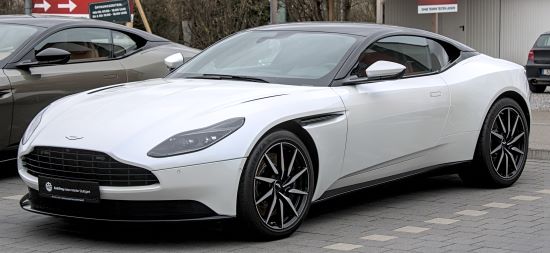
Aston Martin Slams Brakes On EV, Focusing On Hybrids Instead
The iconic British sports automaker originally planned to phase out ICE powertrains by the end of the decade, only to change its mind after noticing the demand for ICE is still around.
Source: Robb Report
Aston Martin’s confidence in its electrification strategy appears to be wavering, though it gave no details on why the U-turn in phasing out ICE powertrains. Nonetheless, the industry watched many fellow automakers like Ford Motor and General Motors to Mercedes-Benz, Volkswagen, Jaguar Land Rover scale back EV plans.
The company now says that in plans to continue building vehicles with combustion engines into the next decade just one month after delaying the debut of its first EV. Additionally, it’s shifting its development focus from battery-powered models to hybrids going forward.
Like its peers, Aston Martin has spent recent years outlining a plan to phase out the combustion engine by the end of the decade as part of its transition to making all-electric vehicles. However, Chairman Lawrence Stroll told the British publication that the timeline has been tossed out.
The executive says it’s now that part of what the brand’s customers like about its cars are the “sounds and smell” produced by an ICE powertrain. Because of that, the marque now expects to build sports cars and SUVs with combustion engines well into the 2030s.
“For as long as we’re allowed to make ICE cars, we’ll make them,” Stroll told the magazine. “I think there will always be demand, even if it’s small.”
This doesn’t mean that the automaker is suddenly opposed to electrification. Aston Martin may have originally viewed plug-in hybrids (PHEVs) as a “bridging” technology, but it now sees them as an effective way of satisfying its current customer base while keeping up with changing emission standards and regulations.
Stroll says the company is investing “very heavily” in PHEVs based around V-8 mills sourced from Mercedes-AMG. The executive didn’t say what model will be the first to get a hybrid powertrain, but the publication identifies the DBX SUV as an “obvious contender.”
Stroll said that Aston Martin will continue to develop EVs, even though it’s become clear there is more “politically driven” hype than actual customer demand for them, especially at the brand’s price point. He feels that this is because Aston Martins and other premium sports cars are primarily for leisure, not everyday driving.
The executive also reiterated the brand’s plan to build four distinct battery-powered models—a GT, an SUV, a crossover, and, most exciting of all, a mid-engine supercar. The EVs will share a bespoke architecture and the first remains on schedule to debut in late 2026, before going on sale the next year.
What You Missed:
Surgical Robot In Space Passes Test With Flying Colours
1,300 Real Estate Companies In Vietnam Closed In 2023
Boeing Review Reveals Appalling Disconnect Between Hierachies
Another Black Mark For Boeing For Damaged Wing Discovered Mid-Air
Implications For Automakers After Baltimore Bridge Collapse
High Household Debt In Dips Thailand Automotive Production And Sales
AST Begins Constructing Singapore Facility For High-End Substrates & Advanced Technologies
eVTOL Aircrafts May Dominate The Skies
Get To Zhuhai From Shenzhen In 20 Minutes With AutoFlight
Wire 2024 in Düsseldorf: Electrifying Prospects for Cables
WANT MORE INSIDER NEWS? SUBSCRIBE TO OUR DIGITAL MAGAZINE NOW!
CONNECT WITH US: LinkedIn, Facebook, Twitter
Letter to the Editor
Do you have an opinion about this story? Do you have some thoughts you’d like to share with our readers? APMEN News would love to hear from you!
Email your letter to the Editorial Team at [email protected]
